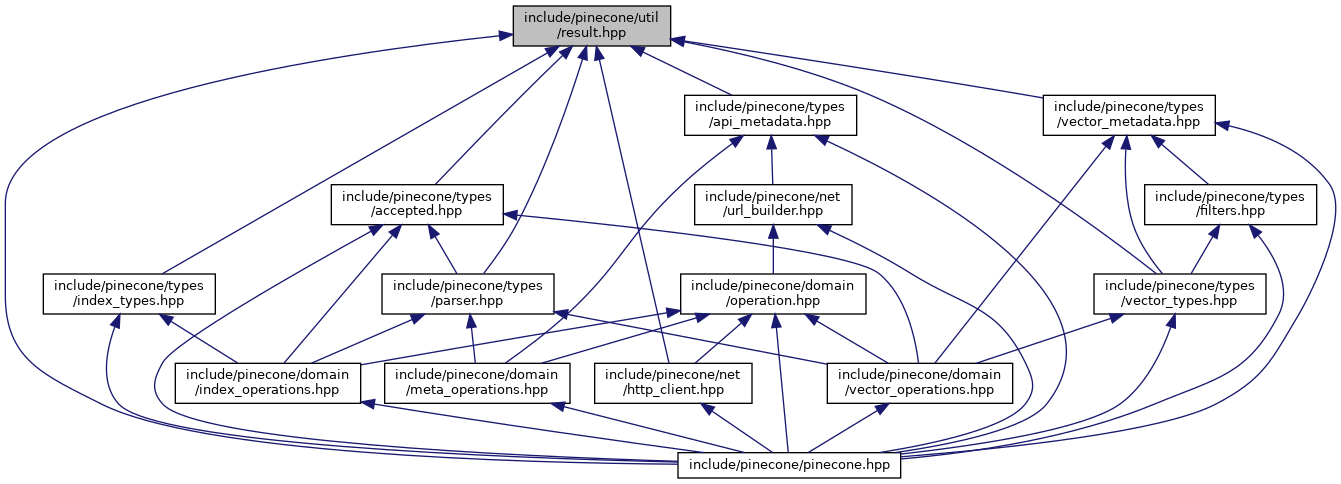Models the possibility of failure for Pinecone operations. More...
#include <sstream>#include <string>#include <variant>#include <curl/curl.h>#include <nlohmann/json.hpp>#include "pinecone/types/error.hpp"#include "pinecone/util/curl_result.hpp"
Go to the source code of this file.
Classes | |
| struct | pinecone::util::failure_reason< F > |
| Data associated with the possible failure modes for Cppinecone operations. More... | |
| struct | pinecone::util::failure_reason< failure::request_rejected > |
| A request that was rejected by the remote API. More... | |
| struct | pinecone::util::failure_reason< failure::request_failed > |
| A request that was processed by the remote API, but failed during processing. More... | |
| struct | pinecone::util::failure_reason< failure::parsing_failed > |
| A request that succeeded on the remote server, but whose response could not be parsed. More... | |
| struct | pinecone::util::result< T > |
| Models the possibility of failure for all Cppinecone public API operations. More... | |
Enumerations | |
| enum class | pinecone::util::failure { none , request_rejected , request_failed , parsing_failed } |
| The possible ways in which a Pinecone API call can fail. More... | |
Models the possibility of failure for Pinecone operations.
Definition in file result.hpp.
|
strong |
The possible ways in which a Pinecone API call can fail.
While there are many different reasons why any one of these failure modes may occur, API users are likely to handle failures depending on which of these categories the failure belongs to. For example, there is likely little that a client can do about parsing_failed, but retrying a request_rejected in the future could be a reasonable course of action.
Definition at line 31 of file result.hpp.